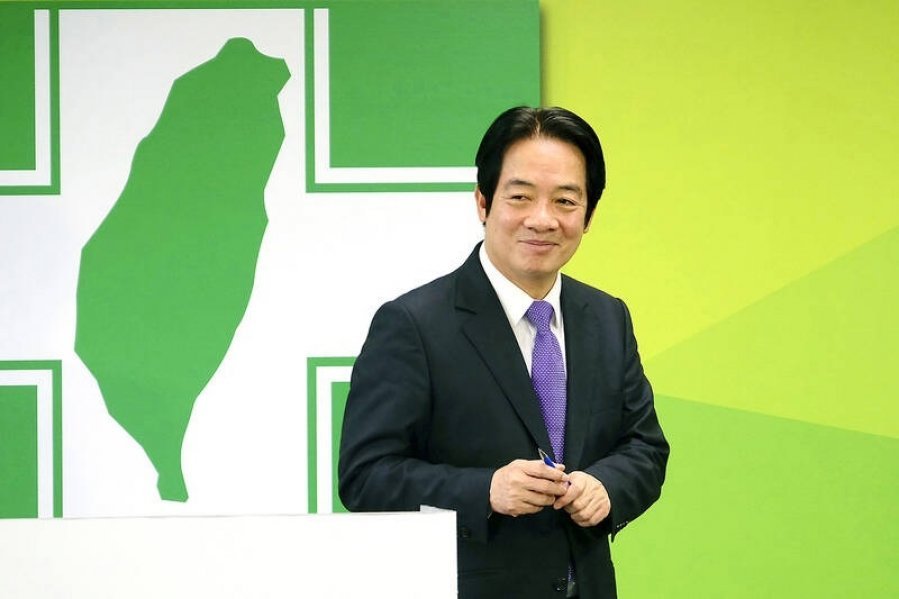分析西方媒体对近期台湾大选的报导,我们可以看出:
1.西方主要媒体一如既往地展示其支持台独反华炒作,声称赖清德胜利是“前所未有的”、“历史性的”、“反中国”的胜利。
根据美国有线电视新闻网 (CNN) 报道,“台湾选民无视中国的警告,给予执政党在总统大选上历史性3连胜”。
为了让新闻具有更大的影响力和认可度,这篇报导由3名华裔记者Eric Cheung、Wayne Chang和Nectar Gan,再加上一个白人记者Jerome Taylor来撰写。
英国广播公司 (BBC) 的头条则是由另一名新加坡华裔记者黄晓恩 (Tessa Wong) 撰写。
“台湾选民在历史性选举中选了赖清德为总统,巩固了与中国日益分歧的路线”
与CNN一样,BBC也意识到,如果文章附有中文名字记者会更有份量。
日经亚洲报道的其中一文,标题如下:“对中国持怀疑态度的赖清德誓言会继续原任蔡英文的政策”
这则日本媒体巨头的报导,记者为Lauly Li、Cheng Ting-Fang 和 Kenji Kawase.
2. 这些报导中试图渲染赖清德胜利的规模和“伟大”,同时让人对中国大陆和台湾统一的可能产生质疑
3. 这些新闻中缺失或忽略的是,一种不同但更重要视角。这种批判性的观点——被西方媒体读者忽视——其对台湾政治发展的影响,将比西方媒体对赖清德胜利的欣喜若狂来得更大。
● 美国支持的亲美候选人赖清德,在这场投票率为72%大选中,拿下了1400万张选票中的40%。这使他成为少数派的总统,毕竟大多数台湾民众不是弃权,就是投反对票。他很难被称为台湾最受观迎的民选领导人或代表主流社会的领导人。值得注意的是,这些报导中也遗漏了,赖清德的胜率不及2020年蔡英文总统。
● 更重要的是,执政民进党(DPP)尽管在总统大选上有巨大优势,但在立法院113个席位中,失去了多数议席。实际上,这是民进党自2016年以来首次失去立法院多数议席。这现象的意义和影响更大。这结果不只是惊醒了美国、其太平洋盟友和民进党,更是他们的噩梦。
● 虽然反对党国民党也未能拿下立法院多数席位,但选举结果意味著被视为亲北京的政党,国民党和台湾民众党,在立法院拥有足够议席阻止或阻挠赖清德与民进党的任何法案。反之,国民党和民众党,即使在缺乏民进党议员支持下,也有可能提出和通过任何与经济、外交关系和对华政策有关的法案。
因此,赖清德在胜选演说中表示,大选成续显示民进党努力不够,的确需要虚心检讨。他也承诺将维持台海和平稳定,愿与中方进行交流。
总而言之,选举结果显然并非如西方媒体大肆宣扬的,反之北京的挫折和难堪,不会比美国及其盟友所期待赖清德和执政党取得压倒性胜利之失落更大。
台湾和中国大陆面临挑战
台湾和世界上少数支持台湾的国家,眼下的挑战就是维持现状。民进党在西方支持下的台独目标不仅遭到选民的拒绝,如今已变得比以往任何时候都更不现实和遥不可及。
这次选举的结果,也解释了为何中国冷回应,对视为“麻烦制造者”赖清德之胜利。
国台办发言人陈斌华就表示:“这次选举改变不了两岸关系的基本格局和发展方向,改变不了两岸同胞走近走亲、越走越亲的共同愿望,更阻挡不了祖国终将统一、也必然统一的大势”。他声称:“解决台湾问题、完成国家统一的立场一以贯之,意志坚若磐石”,“我们坚持体现一个中国原则的‘九二共识’”,坚决反对‘台独分裂行径’和‘外部势力干涉’。”
陈斌华也宣称,中国将与台湾有关政党、团体和各界人士一道,促进两岸交流合作,深化两岸融合发展,共同弘扬中华文化,推动两岸关系和平发展,“推进祖国统一大业”。
林德宜《台湾选举:西方或亲中派胜利》原文:Taiwan Election Result: Western or Pro-China Victory
Analysis of western media reporting on the outcome of Taiwan’s recent elections reveals the following
1. The leading western media provided its usual pro Taiwanese independence anti-China spin with the headline news that William Lai had won an “unprecedented”, “historic”, “divergent from China” victory.
According to CNN “Taiwan voters dismiss China warnings and hand ruling party a historic third consecutive presidential win”.
To ensure the report’s greater reach and acceptability, the story was credited to Chinese reporters, Eric Cheung, Wayne Chang and Nectar Gan, with Jerome Taylor being the token Anglo-Saxon name.
The BBC led with a headline article by its China reporter, Tessa Wong.
“Taiwanese voters have chosen William Lai as their president in a historic election, cementing a path that is increasingly divergent from China.”
As with the CNN, the BBC has realised that its anti China reporting carries more weight if accompanied by a Chinese name as its reporter Nikkei Asia reported the news with the following headline:“China-skeptic Lai vows to continue the policies of incumbent Tsai Ing-wen”
Credit for this Japanese media giant story was given to Lauly Li, Cheng Ting-Fang and Kenji Kawase.
2. What is obvious in the reports is the effort to play up the magnitude and ‘greatness’ of Lai’s victory and simultaneously to call into doubt the possible reunification of Taiwan and China.
3. Missing or marginalised in the reporting is a different but more important perspective of the election outcome. This critical perspective - kept out of sight of Western media readers -will be much more influential in Taiwan’s political development than the western media generated euphoria over Lai’s victory
● US supported and pro American candidate Lai won 40% of the 14 million votes cast in a poll that saw a turnout of 72%. This makes him a President elected by a minority of Taiwan’s populace with the majority of Taiwanese voting against him or abstaining. He can hardly be termed a popularly elected leader or one representing mainstream public opinion in Taiwan. Noteworthy but also missed out in the reporting is that Lai’s margin of victory is less than that of President Tsai in 2020.
● More importantly, the governing party Democratic Progressive Party (DPP) despite the big advantage of incumbency, lost its majority in the 113-seat legislature. In fact DPP lost its parliamentary majority for the first time since 2016. This development carries greater significance and impact than acknowledged. The result is one which will spoil the sleep and provide nightmares to the US, its Pacific allies and the DPP.
● Although the opposition Kuomintang (KMT) also failed to gain a majority, the election result means that the combination of what are seen as pro Beijing parties, KMT and Taiwan People’s Party, have the parliamentary number to block or stop any planned legislation of Lai and DPP. The 2 parties, even without crossover support from DPP parliamentarians, also have a potential majority to initiate and pass any parliamentary measure relating to the economy, foreign relations and China policy.
It is of not surprising that in his victory speech, Lai said the result showed his party did not work hard enough, and vowed to “humbly review” the election. He also pledged to maintain peace and stability in the Taiwan Strait, and offered to pursue exchanges with China.
In all, the election outcome clearly is less a setback and an embarrassment for Beijing as trumpeted by Western media than it is to the US and its allies which had expected a resounding victory for Lai and the incumbent party in power.
Challenge for Taiwan and China
The challenge now for Taiwan and the few countries in the world that support it is just to maintain the status quo. The DPPs objective of an independent and sovereign Taiwan supported by the West has not only been rejected by the electorate. It has become more unrealistic and unattainable than ever before.
This fallout from the election explains why China's response to Lai, the “trouble maker’s” win, has been muted.
Chen Binhua, a spokesperson for the State Council Taiwan Affairs Office, noted that the elections will not change the basic landscape and development trend of cross-Strait relations, will not alter the shared aspiration of compatriots across the Taiwan Strait to forge closer ties, and will not impede the inevitable trend of China’s reunification.
“Our stance on resolving the Taiwan question and realising national reunification remains consistent, and our determination is as firm as rock.”
“We will adhere to the 1992 Consensus that embodies the one-China principle and firmly oppose the separatist activities aimed at 'Taiwan independence' as well as foreign interference,” Chen said.
He also said the mainland will work with relevant political parties, groups and people from various sectors in Taiwan to boost cross-Strait exchanges and cooperation, enhance cross-Strait integrated development, jointly promote Chinese culture, and advance the peaceful development of cross-Strait relations as well as the cause of national reunification.
要看最快最熱資訊,請來Follow我們 《東方日報》WhatsApp Channel.








